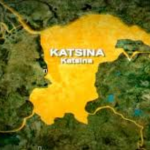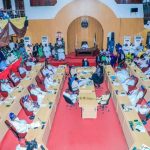Socio-Economic Rights and Accountability Project (SERAP) has urged President Bola Tinubu “to urgently disclose details of the selection and appointment process for the successor to Professor Mahmood Yakubu, whose tenure as the chairman of the Independent National Electoral Commission (INEC) will end in November 2025.”
SERAP urged him “to disclose the number and names of candidates for INEC chairman and whether the Council of State has been consulted or would be consulted in making the appointment, as constitutionally required.”
Professor Mahmood Yakubu will leave office as INEC chairman in November, having completed his two-term tenure of 10 years. President Tinubu is expected to appoint his successor soon, subject to a Senate confirmation.
In the letter dated 27 September 2025 and signed by SERAP deputy director Kolawole Oluwadare, the organisation said: “The selection and appointment process for Mr Yakubu’s replacement cannot and should not be ‘a closed shop.’ A transparent and accountable process would serve legitimate public interests.”
SERAP said, “There is a strong correlation between transparency in the selection and appointment process of INEC chairman and the ability of the commission to perform its constitutional and statutory duties in an independent and impartial manner.”
According to SERAP, “INEC plays a crucial role in Nigeria’s democratic process. Openness and transparency in the selection and appointment process would improve public trust in the commission’s independence and impartiality and citizens’ participation in the electoral process.”
The letter, read in part: “Transparency in the process would also ensure that competent and impartial people are appointed and reduce the risks of conflict of interest. It would allow Nigerians to scrutinise, monitor, and engage with the process.”
“In electoral management, perception matters greatly. It is more important for the selection and appointment process to be objective and fair and to be seen to be objective and fair.”
“The manner in which elections are managed, including how officials managing elections are chosen, would contribute significantly to the sustenance of a democratic culture in the country.”








